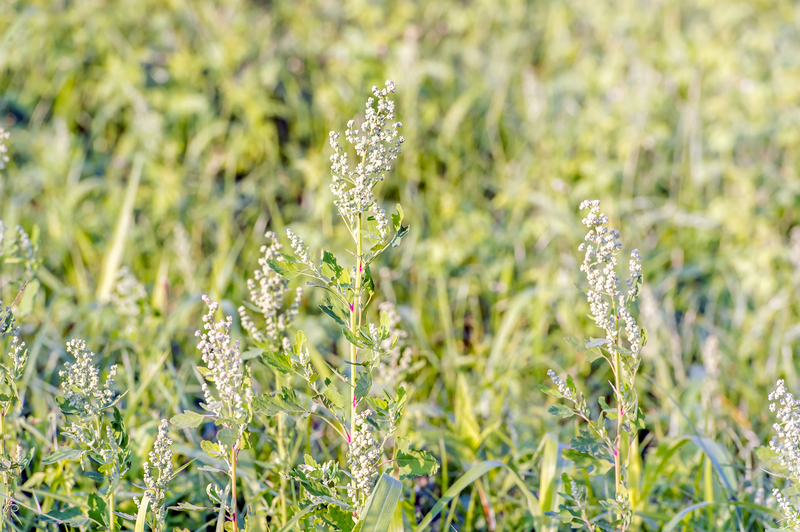Harnessing Organic Waste for Soil Enrichment
Posted on 13/08/2025
Harnessing Organic Waste for Soil Enrichment: The Ultimate Guide
Organic waste is present in every household, restaurant, and farm. Rather than treating this material as a disposable nuisance, innovators around the globe are discovering its immense potential for soil enrichment. In this comprehensive guide, we'll explore how harnessing organic waste not only revitalizes soil but also supports sustainable agriculture, reduces landfill waste, and fosters a greener planet.

What Is Organic Waste?
To understand how organic waste can be used for enriching soil, let's first define it. Organic waste refers to any discarded material from plants or animals that can safely decompose. Common examples include:
- Food scraps (vegetable peels, fruit rinds, coffee grounds)
- Yard waste (grass clippings, leaves, branches)
- Manure and animal bedding
- Sawdust and untreated wood shavings
- Paper and cardboard (uncoated, free of inks and dyes)
All of these materials are biodegradable, and when managed correctly, they transform into rich soil amendments packed with essential nutrients.
Why Harness Organic Waste for Soil Enrichment?
Every year, billions of tons of organic waste are generated worldwide. Unfortunately, much of this ends up in landfills where, deprived of oxygen, it produces methane--a potent greenhouse gas. When we recycle organic matter back into our soils, we actively reduce these emissions and benefit the environment. Here's why a focus on soil improvement with organic matter matters:
- Nutrient Recycling: Organic waste is rich in nitrogen, phosphorus, potassium, and micronutrients that plants need.
- Soil Structure Enhancement: Adding compost or decomposed organic waste improves soil aeration, drainage, and water retention.
- Microbial Activity Boost: Organic inputs nourish beneficial soil microorganisms, promoting plant growth and disease resistance.
- Waste Diversion: Reusing these materials keeps tons of waste out of overflowing landfills.
- Sustainable Agriculture: Enriched soils mean healthier crops, reduced need for chemical fertilizers, and long-term farm productivity.
Methods to Convert Organic Waste into Soil Enrichers
There are several proven ways to convert organic waste for soil amendment. Each method has its unique advantages and is suited for different scales, from backyard gardens to commercial farms.
1. Traditional Composting
Composting is the most familiar practice. It's a controlled process where organic wastes are broken down by microorganisms in the presence of oxygen. Here's how you can compost for soil enrichment:
- Build a Compost Pile or Bin: Start with a simple wire cage or a specialized compost bin.
- Layer Materials: Alternate "greens" (nitrogen-rich materials like grass and veggie scraps) and "browns" (carbon-rich materials such as dry leaves and cardboard).
- Moisture & Aeration: Keep the pile moist, not wet, and turn it every 1-2 weeks to supply oxygen.
- Patience: In 3-6 months, you'll have nutrient-rich, dark compost ready to blend into your garden or fields.
2. Vermicomposting (Worm Composting)
Vermicomposting uses special worms (usually red wigglers) to decompose organic matter. The result is a concentrated fertilizer called worm castings, or "black gold," prized for its high nutrient and beneficial microbe content.
- Set up a bin with bedding (moistened newspaper, cardboard, or coconut coir).
- Add worms and a steady supply of kitchen scraps.
- Harvest castings every 2-3 months and apply directly to soil for exceptional enrichment.
3. Bokashi Fermentation
The Bokashi method relies on anaerobic fermentation instead of decomposition. Using a specialized inoculant, kitchen waste is pickled in a sealed container, producing a pre-compost that can be quickly integrated into soil. Benefits include fast processing, suitability for small spaces, and the ability to compost even meat and dairy.
4. Mulching and Sheet Composting
Instead of collecting waste for composting, some gardeners directly add organic matter to the soil surface as mulch. Over time, this material breaks down in situ, enriching the soil and suppressing weeds.
- Spread grass clippings, shredded leaves, or straw as a thick layer around plants.
- For sheet composting, alternate layers of waste and soil in planting beds, covering with mulch to speed decomposition.
Key Nutrients in Organic Waste for Soil Revitalization
The true power of organic waste soil amendment comes from its exceptional nutrient diversity. Unlike chemical fertilizers, which provide targeted nutrients, organic amendments create a broad spectrum of minerals and elements. Here are just a few:
- Nitrogen (N): Crucial for leafy green growth. Found in kitchen scraps, green plant waste, and manure.
- Phosphorus (P): Supports root development, energy transfer, and blooming. Manure and decomposed leaves are key sources.
- Potassium (K): Strengthens stems, improves drought tolerance. Fruit and vegetable peels provide an excellent supply.
- Calcium, Magnesium, and Micronutrients: Eggshells add calcium, while kelp meal or wood ash offers trace minerals.
Organic matter also enhances Cation Exchange Capacity (CEC) of soil, allowing it to hold onto and exchange nutrients more efficiently with plant roots.
Impact of Organic Waste Enrichment on Soil Health
Soil is a living ecosystem. Adding organic residues fuels a chain reaction that improves every part of the soil's health. Here's what happens when you consistently add compost or other organic amendments:
- Improved Soil Structure: Organic matter helps bind soil particles into crumbs or aggregates, creating air pockets for roots and beneficial microbes.
- Enhanced Moisture Retention: Soils rich in organic matter hold water like a sponge, reducing run-off and drought stress.
- Boosted Biological Activity: Decomposing waste feeds earthworms, bacteria, and fungi, all of which participate in nutrient cycling and disease suppression.
- Soil pH Stabilization: Organic amendments act as buffers, gradually moderating soil pH to optimum plant levels.
*The result: crops that are more robust, resilient, and nutrient-dense, all while restoring the land's natural fertility!*
Environmental Benefits of Recycling Organic Waste into Soil
Using organic waste for soil remediation offers long-term gains beyond the field or garden:
- Reduces Landfill Use: Organic materials account for up to half of solid waste. Diverting this reduces landfill pressure.
- Cuts Methane Emissions: Aerobic composting avoids landfill methane, a gas many times more harmful than CO2.
- Builds Carbon-Rich Soils: Compost stores carbon in the ground, helping fight climate change (carbon sequestration).
- Promotes Biodiversity: Enriched soils support a diverse, healthy ecosystem from microbes to pollinators and birds.
Practical Steps: How to Harness Organic Waste on Your Property
1. Assess Your Waste Stream
Start by tracking the types and quantities of organic waste you produce. Consider food scraps, garden prunings, coffee grounds, and even shredded paper.
2. Choose the Right Processing Method
Select a system based on space, labor, and the types of waste available:
- Backyard compost bins for small spaces
- Worm bins (vermicomposting) for kitchen scraps
- Large compost heaps or windrows for farms and community gardens
- Bokashi for apartments and tricky wastes (meat, dairy)
3. Maintain Your Compost or System
- Balance "greens" and "browns" for a healthy ratio (generally 2:1 carbon to nitrogen).
- Monitor moisture; the pile should feel like a damp sponge.
- Aerate regularly (turn or stir) to avoid foul odors.
4. Apply Finished Material to Soil
- Spread finished compost as mulch or dig it into planting beds.
- Top-dress lawns with a thin layer in spring and fall.
- Mix vermicastings into potting mixes or around plant roots for a concentrated nutrient boost.
5. Keep Improving
Expand your efforts by encouraging neighbors, schools, or workplaces to join in community composting! The more organic waste diverted and returned to the land, the greater the benefits for everyone.
Challenges and How to Overcome Them
While the benefits of harnessing organic matter for soil are immense, a few challenges may arise:
- Pests and Odors: Avoid meats, fats, and dairy in open compost and cover all food scraps with carbon materials (browns).
- Time Commitment: Composting requires some monitoring and periodic labor. Consider low-maintenance methods like sheet composting if time is scarce.
- Lack of Space: Use worm bins, Bokashi systems, or take advantage of municipal organic recycling programs.
- Imbalanced Piles: If your pile is slow or smelly, adjust ratios or aerate more often.
Future Trends: Organic Waste as a Global Resource
Municipalities, businesses, and entire regions are recognizing the value of transforming organic byproducts into soil enrichers. Forward-thinking communities now offer curbside food waste collection and invest in large-scale composting and anaerobic digestion systems that generate renewable energy as well as soil amendments.
On a global scale, agricultural waste recycling is pivotal for food security, healthy soils, and climate resilience. Innovations like biochar (charred plant waste added to soil) and advanced organic fertilizers continue to drive efficiency and sustainability.

Conclusion: The Power of Organic Waste for Soil Enrichment
The planet's waste crisis is also a powerful opportunity. By harnessing organic waste for soil enrichment, we close the loop between consumption and growth. Every banana peel, autumn leaf, or coffee ground that turns into living soil is part of Earth's ancient cycle of renewal.
Whether you're a home gardener, a commercial farmer, or an eco-conscious citizen, utilizing organic matter for soil improvement is a practical, impactful step toward healthier crops, more robust landscapes, and a brighter ecological future. Now is the time to let your waste become the world's wealth--*one compost pile at a time*.
Frequently Asked Questions (FAQ)
- What organic wastes are best for compost?
Fruit and vegetable scraps, coffee grounds, eggshells, grass clippings, leaves, and shredded paper. Avoid meats, oils, and synthetic materials. - How long does organic waste take to enrich soil?
Composting typically takes 3-6 months. Vermicomposting and Bokashi can be faster with the right conditions. - Can I use only organic waste as fertilizer?
Rich compost can replace or reduce chemical fertilizers. However, specific crop needs or poor soils may require supplemental amendments. - What if I don't have space for compost?
Try worm bins, Bokashi systems, or seek out community composting programs in your area.
Ready to Get Started?
Turn your everyday waste into an asset. Start small or go big, but start today--your soil, your plants, and the planet will thank you!
Latest Posts
Unleash the Joy of Gardening with Your Dog
Proven Techniques for Nurturing Orchids Successfully
Vital Garden Tools for Enthusiasts of the Outdoors
Grow a Kid-Friendly Paradise in Your Garden
Crafting Calmness: Zen Garden Designs for a Harmonious Outdoor Space



